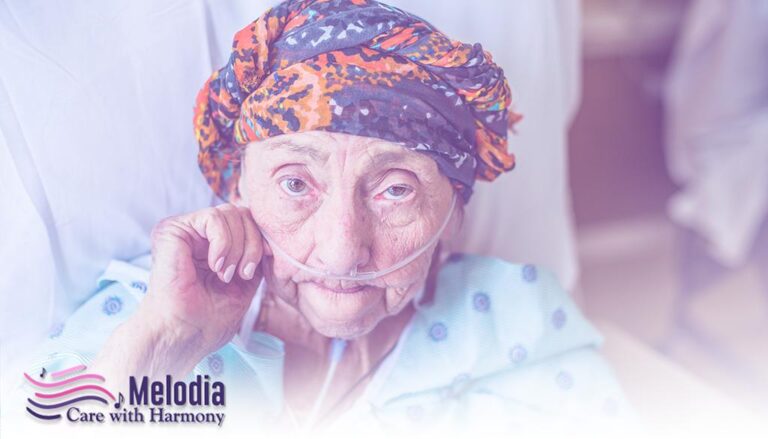End Of Life Care In Town of Danville, California
End-of-life planning is the process of putting one’s affairs in order and deciding how they wish to spend their final days. Advance care planning entails preparing a living will, a healthcare proxy, and the last will, among other documents. End-of-life planning ensures that people who care for a person may carry out their final desires, whether they are well or confronting a terminal disease. While it is a challenging issue to ponder and discuss, a person must have their affairs to ensure a seamless transition following their death. For whatever cause, approaching the end of life may be a frightening moment for everyone concerned. Many individuals, including patients, caregivers, and family members, are frequently surprised by the critical and positive role of palliative care in enhancing the quality of life and making this difficult time more bearable.
During a progressive life-limiting illness, palliative care helps to enhance people’s quality of life. It isn’t simply about using pain relievers. It is more comprehensive. It also covers the psychological and spiritual components of care, offering assistance to patients so they can live as fully as possible. Being well-informed on palliative care can help make this journey more bearable and decrease the worries and concerns that come with it. That is why Melodia Care is introducing a series of articles to help people understand how palliative care may help patients, their caregivers, and their families live better lives.
What Happens When Someone Is On Their Deathbed?

Knowing what to expect when someone you care about is dying might help to alleviate some of the stress. The dying process is unknown to most of us, but there are several regular occurrences that you can watch out for. It is natural for people to die. It’s something we’ll all have to deal with at some point. However, having some idea of what to expect can benefit both you and the dying person. Not everything happens in the same order, and not all of these signs and symptoms will appear simultaneously. Most of them are related to the natural shutting down of various organs and functions as the body ages and illness or disease strikes. The body makes the following preparations for the final days of life:
Food & Fluid
Often, a person’s desire to eat and drink begins to decrease. The body does not require food in the same manner as it does ordinarily, and consumed food is not used in the same way. Give the individual the meal they desire, not the food you believe they should have. They aren’t starving to death; they are dying of a fatal sickness. The ideal meals are small; beautiful meals are served regularly. Allow the individual to choose how much and when to eat and drink.
People’s Curiosity Has Waned
It may be a challenging issue for families to deal with. People who are nearing the end of their lives may show less interest in others and even their environment. Some people may desire more alone time, while others may desire closeness from others. Pay attention to what is being requested. Speech is frequently sluggish, halting, or hesitant. It is necessary to pay close attention to what is being said. People may initially withdraw from their local community (friends), leaving them with just time for their families. Later on, they may desire one or two family members, and they may withdraw altogether. It is to be expected; pay attention to what they’re saying and asking.
Sleeping
It’s possible that sleeping will take up more time. As the body weakens and shuts down, the end of life may be exhausting. The individual may sleep more and become uncommunicative, unresponsive, and difficult to awaken. Sit with them and, if they desire, softly grasp their hand. Speak clearly and quietly. We’re said to be human beings, and that’s why being is far more vital than doing at this point. Being there for the dying person is frequently considerably more powerful and valuable than racing around trying to get things done. Hearing is supposed to be the last sense to go, so watch what you say. Please don’t assume they can’t hear what you’re saying because their eyelids are closed, and they appear to be sleeping.
Confusion & Restlessness
At times, people may appear perplexed. Could you not get too worked up over it? It occurs so frequently that it seems to be expected. However, if you think you’re having hallucinations, you should get medical help. Hallucinations can be pretty upsetting. Remember how you feel when you wake up from a nasty dream? For a dying person, it may be like that. As a result, it’s critical to pay attention to this symptom. Assure them that they are secure, and let them know who you are and where they are. It’s also typical for dying persons to claim to have seen someone who has already passed. It happens so frequently that it’s easy to dismiss it as usual. Unless the individual is disturbed, you do not need to intervene. It isn’t a delusion, and it’s rarely a side effect of the medicine. It simply denotes a person preparing for death by developing a normal separation from this life. It is unlikely that they will feel distressed as a result of this.
Incontinence
As the muscles in this region relax, the individual may lose control of their bladder and bowels. Inquire with the nurses about the best way to handle this. They’re used to coming up with practical solutions for this type of event. It is critical to keep the individual as clean and dry as possible; dealing with damaged and irritated skin adds an unnecessary load to someone who is already unwell. The kidneys will become less efficient as time goes on, and urine flow will decrease.
Breathing
A change in respiratory rhythm is another prominent symptom that death is approaching. Breathing patterns might become shallow, erratic, rapid, or unusually sluggish. A rhythmic breathing pattern goes from deep breathes to extremely shallow breaths, which may appear scary. Especially if you believe the victim has wholly ceased breathing. When they breathe, they may also produce noise. It may appear to be a distressing sound, but it is typically just the voice cords becoming less efficient. Changing breathing patterns are pretty prevalent in dying people, and they generally are a symptom of diminished brain circulation.
Colour Shifts
The person’s arms and legs may appear chilly, heated, or discoloured as their circulation diminishes. A change in colour around the lips is also possible. It is typical and indicates that the circulation is slowing down and maintaining vital organs until the end.
The Previous Hours Or Days

Because of human nature, most individuals will strive to cling on for as long as they can. Life can become a struggle. Enduring the bodily changes can’t go indefinitely, so telling the person that they can let go at some point is usually beneficial. If you are able, reassuring the individual that those left behind will be fine and fine for them to leave is frequently helpful. The capacity to do so can be a wonderful gift to a dying person. At the same time, it’s crucial to say your goodbyes. You can say it out or lie close to them, holding their hand or softly caressing their head. It’s very natural to weep, so don’t feel bad about it or attempt to hide your tears.
When Did You Die?

It’s crucial to understand what occurs when a person dies:
- Breathing ceases
- There’s no pulse
- Can’t awaken the individual; their eyelids may be half-open with a fixed look
- Their lips may fall wide as their jaw relaxes
- It’s completely silent
Please see your doctor or nurse if you have any questions about any element of this procedure. They’ve been through it before and will prove to be invaluable resources. Always remember to ask for assistance. You will not be penalised as a result of your actions. Keep in mind that you have a role to play in all of this. Make sure you look after yourself. When you can, eat, drink, exercise and attempt to sleep. It might be a draining period, but it can also be a wonderful gift to someone to care for them in their final days or weeks.
Summary

The measures a person takes to plan their end-of-life care desires are referred to as end-of-life planning. Conversations with loved ones and healthcare experts consists of completing paperwork such as advance directives and powers of attorney. It may be challenging to consider end-of-life care, but making these decisions ahead of time can provide peace of mind to both the individual and those responsible for carrying out their intentions.
You can reach us at any time of day or night by contacting us through our 24/7 online customer support chat or by calling 1-888 635-6347 (MELODI-7).
